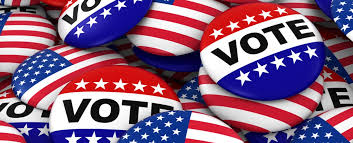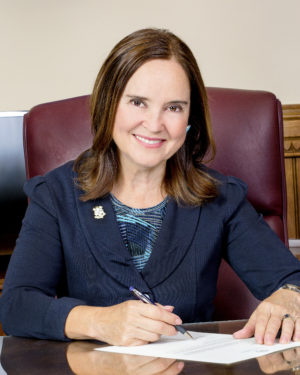All registered voters in CT receiving absentee ballots for primary, general elections
Connecticut Secretary of the State Denise Merrill will make absentee ballots available to all registered voters for the Aug. 11 primary and Nov. 3 general election.
 “No Connecticut voter should ever have to choose between their health and their right to vote,” Merrill said. “This plan is designed to ensure that Connecticut’s elections will be safe, secure and accessible to every eligible voter who wants to participate.
“No Connecticut voter should ever have to choose between their health and their right to vote,” Merrill said. “This plan is designed to ensure that Connecticut’s elections will be safe, secure and accessible to every eligible voter who wants to participate.
“We are facing an illness without precedent in our lifetimes and our election system has to adapt to meet its challenge,” Merrill said. “By making sure that every voter who needs an absentee ballot is able to get one without cost to the voter or to their town, we are safeguarding Connecticut voters’ ability to participate in choosing their government.
“And make no mistake ”“ fear of the coronavirus will guarantee that we will be seeing a higher volume of absentee ballots in 2020, whether we like it or not,” she added.
Contracting with a mail house, Merrill”™s office will be sending applications for absentee ballots to every registered voter in the state and including postage-paid return for those applications. After processing at the local level, those voters who request absentee ballots will be delivered ballots via the mail house, with the cost of both the mailing and return of the absentee ballot borne by the Office of the Secretary of the State.
Following guidelines issued by the federal Centers for Disease Control and Protection, the office will also work with Connecticut”™s municipalities to give them the resources they need to make in-person voting as safe as it can be, Merrill said.
Measures include approving towns’ plans for polling place locations and layouts, staffing levels, emergency plans, and cleaning and safety materials needed. Merrill”™s office, utilizing $5.2 million from the federal government”™s Safe Polls grant program, will be able to provide the resources necessary to secure the cleaning and safety equipment, as well as cleaning the polling places themselves and hiring additional poll workers, that will keep voters and poll workers safe.
Merrill”™s office will also be able to help towns recruit and train poll workers for Election Day.
Cybersecurity ramping up
The Office of the Secretary is also going to leverage cybersecurity funding to protect the elections from malicious actors at both the state and local levels. Working with the Office of the Secretary, the Connecticut National Guard will perform a high-level cybersecurity assessment of the election infrastructure of each of Connecticut’s 169 towns.
The office has identified approximately 20 towns that have had chronic connectivity issues to the state’s election infrastructure, and will be providing network upgrades in those towns to prevent potential security risks.
The office is also instituting a grant program whereby it will pay for 50% of the upgrade when towns commit to replacing outdated hardware and software, and is providing towns with more online certification and security training, a dedicated trainer, and Election Support Officers to serve as field support on a regional basis.

Also at the local level, the office has successfully piloted and will be rolling out statewide a Virtual Desktop Infrastructure to increase security at the local access point to the Central Voter Registration System (CVRS), described as “the backbone of Connecticut’s election administration system.”
Over the past year, the office has significantly upgraded the security of the CVRS by instituting complex password and dual-factor authentication requirements. As one of the first centralized voter registration databases in the country, Connecticut’s CVRS is nearing the end of its useful and secure life, according to the office, and requires a comprehensive upgrade in the near future.
The office has begun planning for CVRS’ eventual replacement and will begin implementation at the end of the 2020 cycle. In the near term, due to the complexity of the legacy code, the office has frozen that code in place for the 2020 election cycle to prevent the creation of security risks.
“Since the Russians attempted to interfere in our election in 2016, cybersecurity has become one of our highest priorities,” Merrill said. “All the information we have received from the federal intelligence community indicates that various malicious actors are still seeking to disrupt our elections, but Connecticut is partnering with federal, state and local officials to make our cybersecurity as strong as it can be, and our elections among the most secure in the country.”
The full plan can be found here.